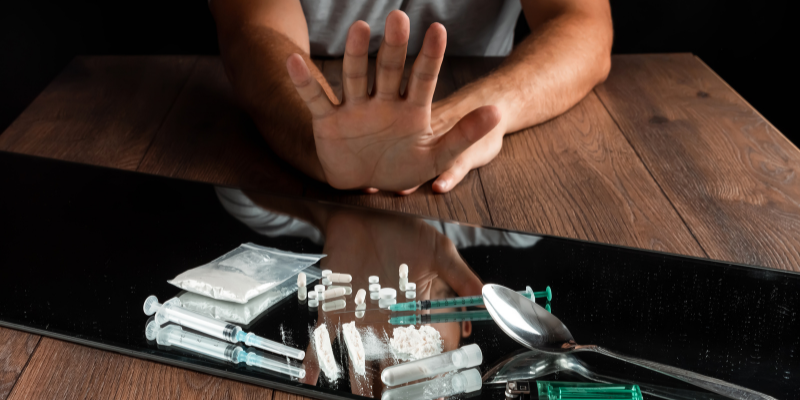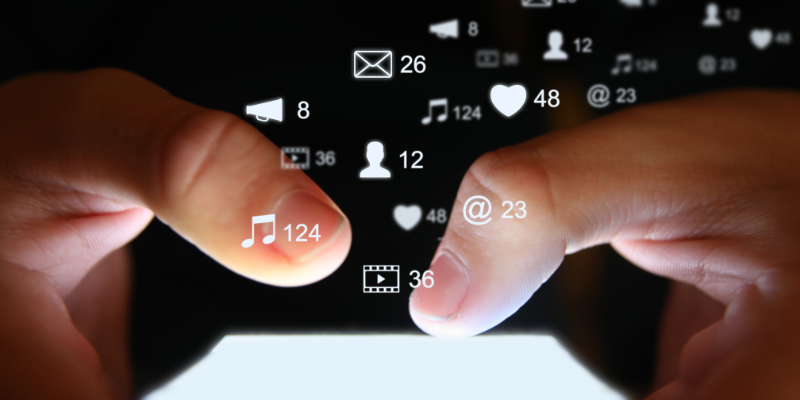
Do you have a few too many glasses of wine? Crack open a 6-pack of beer every time you watch a game on TV? Do you smoke weed or take prescription medications, like benzodiazepines, to help you get through your day? Or did you overdo it with alcohol or drugs in the past? It’s no surprise that substance use is harmful to your brain. But is that harm permanent? Or can you heal your brain even if you’ve been bad to it?
It’s no surprise that substance use is harmful to your brain. But is that harm permanent? Or can you heal your brain even if you’ve been bad to it? Click To Tweet
That’s a question actor, singer, dancer Frankie Grande had when he visited Amen Clinics for a brain SPECT scan for an episode of Scan My Brain. By the time he was 24 years old, he had already been dealing with an addiction to alcohol, but he also started “dabbling in other substances.” According to the entertainer, “It was a very slow ramp-up to where it was out of control,” he says to Dr. Daniel Amen in the episode.
It got to a point where the entertainer thought, “It’s time to make a change, otherwise you’re going to be dead.” Fortunately, he chose life. After 4 years of sobriety, he wondered if his SPECT scan would reveal a brain ravaged by his past substance abuse. The results surprised him.
DRINKING, DRUGS, AND THE BRAIN
Brain SPECT imaging studies of people with addictions show markedly unhealthy patterns of blood flow and brain activity. On SPECT, drugs and alcohol lead to a pattern called scalloping, or overall decreased blood flow and activity. Low blood flow on SPECT scans has also been associated with depression, bipolar disorder, schizophrenia, ADD/ADHD, and more. Low blood flow is also the #1 brain imaging predictor that a person will develop Alzheimer’s disease. In addition, research shows that people who drink every day have smaller brains. When it comes to the brain, size matters!
Scientific evidence also shows that heavy alcohol use can interfere with hormonal systems and neurotransmitters, which play an important role in mood disorders and anxiety disorders. That’s not all. Moderate-to-heavy drinkers increase their risk of dementia by 57% and develop it earlier compared to nondrinkers and light drinkers, according to a 2015 study.
Even supposedly “harmless” drugs like marijuana can have a negative impact on the brain. In 2016, the Amen Clinics published the largest brain imaging study on 982 marijuana users showing overall decreased blood flow compared to a healthy group. The most pronounced decrease in blood flow was seen in the right hippocampus, a brain region commonly involved with memory loss and Alzheimer’s disease.
Using cannabis as an adolescent increases the risk of developing depression and suicidal thoughts and behaviors in young adulthood, according to a 2019 review. Other findings on marijuana point to impaired short-term memory, problems with learning and attention problems, reductions in focus and coordination, and increases in the risk for psychosis. In fact, results of a 2019 study in The Lancet Psychiatry show that potent cannabis may be associated with 10% of new cases of psychosis.
SPECT scans show that other drugs, such as cocaine, heroin, and methamphetamine are also damaging to the brain. But is it possible to heal that damage?
HEALING THE BRAIN AFTER SUBSTANCE ABUSE
Brain SPECT imaging shows that it is possible to improve brain health even if you’ve been a heavy drinker or been addicted to drugs or alcohol. At Amen Clinics, before-and-after SPECT scans of patients who have overcome addictions show some of the most dramatic improvements in cerebral blood flow and brain activity.
To Frankie Grande’s surprise, his brain scans looked healthier than he anticipated. Being sober for 4 years and adopting brain healthy habits during that time likely helped repair some of the harm typically seen from excessive drinking and drug use.
Interventions that can help heal the brain if you have had a drinking problem or have used drugs include the following:
Eliminate alcohol or drugs.
If you’re already sober, congratulations! That is a huge step to healing your brain. If you’re still using and need help to stop, look into a brain-centered treatment program.
Investigate the underlying causes of why you use alcohol and/or drugs.
Determine if something such as past emotional trauma, anxiety, or depression is leading you to self-medicate with drugs or alcohol and seek treatment for those issues.
Adopt brain-healthy habits.
Avoid things that hurt your brain and engage in things that help it.
Try hyperbaric oxygen therapy (HBOT).
HBOT is a simple, non-invasive, painless treatment with minimal side effects that use the power of oxygen to enhance the healing process and reduce inflammation. Before-and-after SPECT scans of patients who have undergone HBOT show remarkable improvements in blood flow.
Take nutritional supplements and medications (if needed).
Support your brain health with targeted nutraceuticals as well as any prescription medications you need.
Addictions and other mental health issues can’t wait. At Amen Clinics, we’re here for you. We offer in-clinic brain scanning and appointments, as well as mental telehealth, clinical evaluations, and therapy for adults, teens, children, and couples. Find out more by speaking to a specialist today at 888-288-9834 or visit our contact page here.





Great information!! Thank you.
Comment by Wendy H. Barrios — July 20, 2022 @ 9:28 AM
Lets love our brain! Memory care and Alzheimers' care is expensive. There are wait lists to care facilities.
Enhance your brain health with supplements as needed. Brain scans is a preventative tool. Compare it to wearing a seat belt 🙂
Comment by M. Lamason — July 21, 2022 @ 7:30 AM